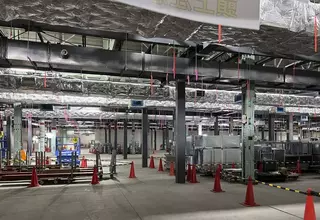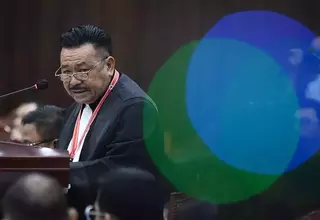Nissan to Develop Ethanol-Based Fuel Cell Technology by 2020
Tokyo. Nissan Motor Co said on Tuesday (14/06) it was developing fuel cell vehicle (FCV) technology using ethanol as a hydrogen source in what would be an industry first, and planned to commercialise its system in 2020 as part of efforts to develop cleaner cars.
The Japanese company said using ethanol, produced from crops including sugar cane and corn, to generate hydrogen-based electricity inside vehicles would be cheaper than fuel cell technology developed separately by rivals Toyota Motor Corp Honda Motor Co, and Hyundai Motor Co .
"The cost and energy required to produce hydrogen can be very high, and it also requires significant investment in (fuelling and storing) infrastructure," Nissan Executive Vice President Hideyuki Sakamoto told a media briefing.
"Compared with that, ethanol is very easy to procure, it is safer to store and lower cost. These are its merits."
Nissan said its technology would be ready for use in vehicles in 2020, adding it could be used to extend the range of larger, electric vehicles such as delivery vans.
It would target a cruising range of around 800 kilometers per fuelling, more than the range for gasoline-powered vehicles of just over 600 kilometers.
The automaker said running costs for the FCVs would be roughly similar to those of electric vehicles, while declining to give details on vehicle pricing.
Ethanol is used as a fuel source for vehicles in countries including Brazil, but Nissan is planning to use it to generate electricity in fuel cell stacks to charge batteries which would power vehicle motors.
In developing its FCV technology, Nissan joins Toyota and Honda in a national, government-backed drive to develop a "hydrogen society", in which the zero-emission fuel would be used to power homes and vehicles, and reducing Japan's reliance on imported fuel sources and nuclear power.
Toyota began marketing the Mirai, its hydrogen FCV, in late 2014, while Honda earlier this year began sales of its Clarity Fuel Cell vehicle. Initial production for both models has been limited due to their relatively high cost and limited fuelling infrastructure.
Unlike its rivals' offerings, Nissan's technology does not require hydrogen to be stored in vehicles, reducing the need for expensive bulky hydrogen tanks, and would not require fuelling stations, which have been slow to spread globally.
Reuters
Tags: Keywords:POPULAR READS
Nissan to Make Next-Generation EV Batteries by Early 2029
Solid-state batteries are widely seen as the next step for EVs.Airlangga Set to Extend Leadership in Golkar After Election Success
Under his leadership, Golkar rose to the second position in the legislative polls and successfully made Gibran the elected vice president.Yellen Says Iran's Actions Could Cause Global 'Economic Spillovers'
Iran's missile attack on Israel early Sunday came in response to what it says was an Israeli strike on Iran's consulate in Syria.Takeaways from Prabowo's Responses to Legal Motion Contesting His Election Win
Part of the argument addresses the claim that the candidacy of Gibran Rakabuming Raka, Prabowo’s running mate, is unlawful.Prabowo Camp Cites ‘Procedural Error’ in Legal Challenge by Rival Candidates
The Constitutional Court's main task is to address alleged discrepancies in vote tallies, which neither of the plaintiffs challenged.Popular Tag
Most Popular






















